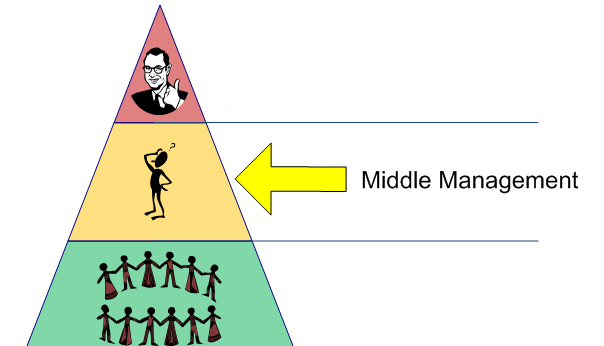A global survey of more than 3,000 remote workers found middle managers (defined as those managing one to six people) are 46 percent less satisfied with their jobs than senior executives (those managing at least 15 people).
The Future Forum survey also shows middle managers have struggled more than twice as much as executives when it comes to maintaining a sense of belonging, and they feel more stressed and less productive than their more senior colleagues.
The data suggests several factors for this increased stress levels and decreased job satisfaction. Specifically, as organizations shift toward a more distributed workforce, the traditional role of a middle manager — monitoring productivity, optimizing individual performance — is becoming redundant in three ways:
- The conventional 9-to-5 model is growing obsolete – In the past, the in-office working model meant managers could monitor their teams by walking about the office and checking in with employees. But the pandemic has demonstrated that flexible, remote work schedules can drive better work-life balance, lower stress levels and higher productivity.
- Digital infrastructure is replacing the physical office – Much of the traditional role of a middle manager has been to support communication and collaboration. But when that communication moves from a meeting room to a digital channel, it becomes easier to automate the documentation and sharing of key information and decisions. This increases transparency, but it eliminates the need and effectiveness of information sharing mechanisms middle management used previously.
- Measuring output has gotten easier, while building shared purpose has gotten harder – With a distributed workforce, holding a team together is more challenging. The ability to communicate clearly and rally teams remotely has become critical. At the same time, the shift to digital tools has simplified the process of tracking and measuring output. These shifts mean the traditional management approach of “command and control” is unnecessary, and in some cases, counterproductive.









